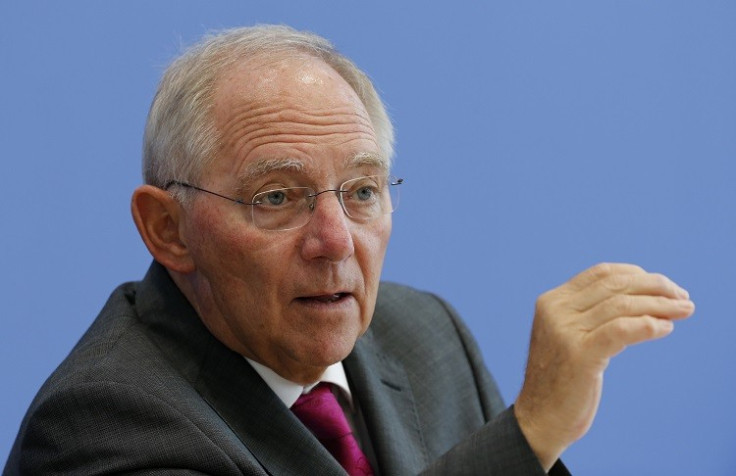Germany's Wolfgang Schaeuble: Greece Needs Another Bailout

German Finance Minister Wolfgang Schaeuble let slip that crisis-mired Greece will need a third bailout for it to "get over the hill".
Multi-billion euro Greek bailouts, funded with large chunks from German taxpayers, are widely unpopular in Germany, where much of the population feel Greece should do more to cut back on its spending or simply leave the eurozone altogether.
Schaeuble's awkwardly-timed comments come as his governing Christian Democratic Union (CDU) party, led by Chancellor Angela Merkel, seeks re-election alongside its current coalition partners in the Christian Social Union (CSU).
"There will have to be another programme in Greece," Schäuble admitted at an election rally in Hamburg, as Germans prepare to head to the ballot boxes on 22 September for a federal election.
The centre-right CDU/CSU coalition currently leads the polls against opposition rival the Social Democratic Party (SPD). Pollster Allensbach has the CDU/CSU on 39% and the SPD on 24.5%.
Centre-left SPD has been broadly supportive in the Bundestag of the German government's eurozone policies, but the party's leader Peer Steinbrueck, speaking at his own election rally, accused Merkel and her government of trying to delay debate of big issues such as Greek bailouts until after the September polls.
Greek bailouts
Greece has been at the centre of the eurozone sovereign debt crisis after markets lost confidence in the country and it suddenly faced the prospect of a default, throwing the entire single currency area into chaos.
The Greek government could no longer maintain its high levels of public expenditure and embarked on a painful austerity programme, which has seen the economy contract for 20 consecutive quarters and leave millions out of work and on the breadline.
The troika of the EU, International Monetary Fund and European Central Bank have so far agreed to give Greece two bailout packages worth €219bn, based on a series of conditions such as public spending and debt targets that must be met before tranches of cash are released.
Greece reported a surprise fiscal budget surplus in the seven months to the end of July.
Before interest payments on debt, the Greek state budget had a surplus of €2.6bn , compared to a deficit of €3.14bn in the corresponding period a year before.
However, the budget had been lifted by the troika's rescue funds and also does not include local authorities' finances and social security budgets.
© Copyright IBTimes 2025. All rights reserved.






















